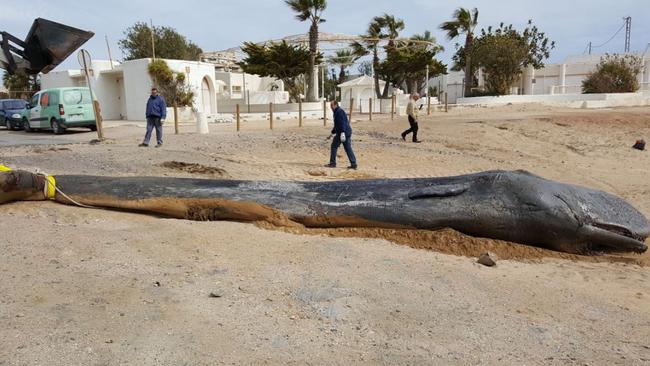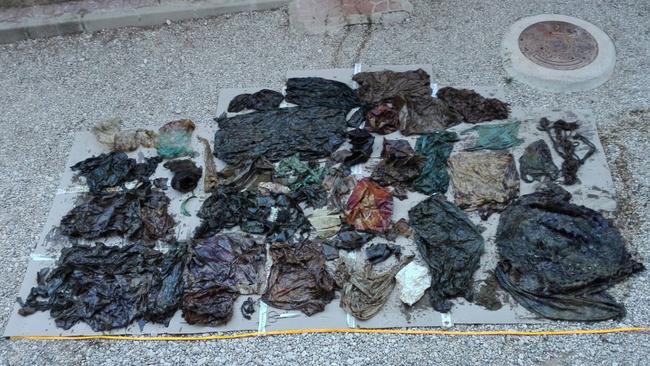Contents of beached whale’s stomach sparks ocean clean up initiative
AFTER a sperm whale washed up dead on a Spanish beach, officials now say they have solved the shocking mystery of what killed it.
WHEN a young sperm whale washed up on a Spanish beach earlier this year, scientists were keen to find out what caused the animal’s death.
After finding out what was inside the whale’s stomach, they now think they know — and it points to a harrowing problem facing today’s marine life.
Inside the belly of the juvenile sperm whale was nearly 30kg of plastic.
The 10-metre-long whale washed up on the beach of Cabo de Palos in the Spanish region of Murcia on February 27 and was unusually thin. Sperm whales typically feast on giant squid as well as octopus, small sharks and other fish but local wildlife officials soon found an array of rubbish had been ingested by the whale.
Inside its stomach was plastic bags, ropes, nets, drum line, a plastic water container and sacks of raffia straw.
It’s unlikely that the mammal would have been unable to digest or excrete the rubbish, experts said, resulting in its death from an abdominal infection.


The necropsy results were released last week and what makes the death all the more heartbreaking is the fact that sperm whales are currently considered an endangered species. Six out of the 13 great whale species are classified as endangered or vulnerable, according to the World Wildlife Fund.
READ MORE: Diver video shows shocking plastic levels in Indonesian ocean
READ MORE: Tradie turned photographer shines light on ocean conservation
READ MORE: Floating plastic island bigger than we thought
The discovery of the sperm whale’s stomach contents has prompted local authorities in Spain to launch a campaign to clean up its beaches and oceans.
“The presence of plastic in the ocean and oceans is one of the greatest threats to the conservation of wildlife throughout the world, as many animals are trapped in the trash or ingest large quantities of plastics that end up causing their death,” Murcia’s general director of environment Consuelo Rosauro said in a statement.
Around 150 million tons of plastic are already floating in our oceans with an additional eight million tons entering the water each year.
Researchers recently said a vast dump of plastic waste swirling in the Pacific Ocean was bigger than previously thought and was now bigger than France, Germany and Spain combined.



